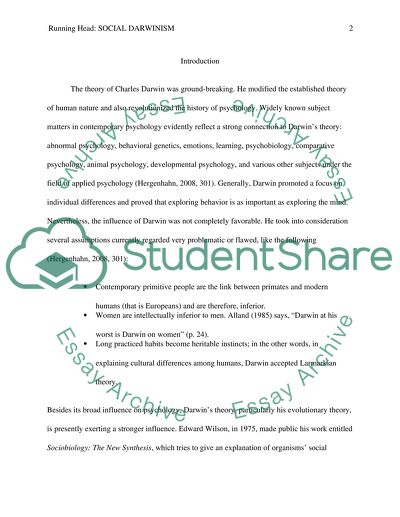Cite this document
(“Social Darwinism Essay Example | Topics and Well Written Essays - 2000 words”, n.d.)
Retrieved from https://studentshare.org/psychology/1470158-social-darwinism
Retrieved from https://studentshare.org/psychology/1470158-social-darwinism
(Social Darwinism Essay Example | Topics and Well Written Essays - 2000 Words)
https://studentshare.org/psychology/1470158-social-darwinism.
https://studentshare.org/psychology/1470158-social-darwinism.
“Social Darwinism Essay Example | Topics and Well Written Essays - 2000 Words”, n.d. https://studentshare.org/psychology/1470158-social-darwinism.


